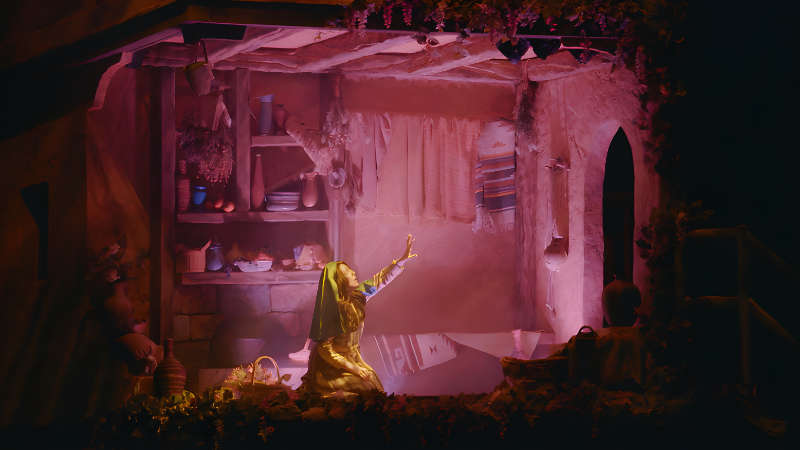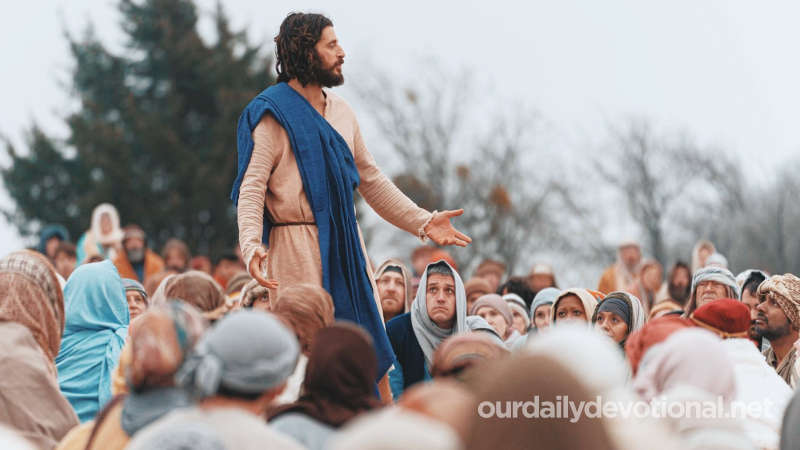In our Spanish Bibles, Ezekiel appears between the book of Lamentations and Daniel. In the Hebrew canon, these two books were among the Hagiographers, with Ezekiel being right after Jeremiah.
Almost all of the prophecies are in chronological order and dated according to the years of King Jehoiachin's captivity. (a) SECTIONS OF THE BOOK is divided into three:
(A) Prophecies proclaimed before the taking of Jerusalem, announcing its destruction as a consequence of its transgressions. In the 5th year, the priest is called to be a prophet, for which he prepares a vision (Ez. 1: 1-3: 21).
Ezekiel is then ordered to predict the destruction of the city and to perform symbolic performances (Ez. 3:22-7:27).
In the 6th year he denounces the idolatry of Judah (Ez. 8) and communicates the symbolic vision of the departure of the glory of Jehovah, which leaves the desecrated temple (Ez. 9: 1-11: 13).
Ezekiel encourages the deportees: they remain the people of the Lord, who will be a sanctuary for them (Ez. 11:16), will return them to the land of Israel (Ez. 11:17) and will give a new heart to those who rectify your ways (Ez. 11:18-21).
Jehovah abandons his city because it has given itself over to unbelief and false prophets (Ez. 12-24). Judgments will fall upon the city (Ez. 15-17), but God will grant his grace to those who repent (Ez. 18).
Chapter 19 is a lamentation over the princes of Israel. In the 7th year of Jehoiakim's captivity, Ezekiel predicts judgment on Israel, which has profaned the name of Jehovah before the Gentiles.
There are however promises for the future; God will accept them again because of his name (Ez. 20: 1-44). However, he remembers his transgressions, whose punishment is coming (Ez. 20:44-23:49). In the 9th year he represents the parable of the boiling pot symbolizing the siege of Jerusalem (24).
(B) Prophecy concerning the judgment of the nations.
In the 9th year of the exile, prophecies are given against Ammon, Moab, Edom and the country of the Philistines (Ez. 25); the 11th year, against Tire and Sidon (Ez. 26-28); the years 10th, 27th. 11th and 12th, prophecies against Egypt (Ez. 29-32).
(C) Prophecies about the restoration of Israel and the glorious future of it. They are proclaimed after the taking of Jerusalem and its destruction by Nebuchadnezzar.
In the 12th year of Jehoiakim's captivity, the afternoon before news of the fall of Jerusalem reached Ezekiel, he received a second calling from God.
The hand of the Lord came upon him; The moment in which he learned of the fall of the city coincided with the beginning of a new stage of his mission (Ez. 33: 1-22).
It is revealed to him that the Israelites would recognize, after the judgment, that Jehovah is God, and that a true prophet had been among them (Ez. 33:23-33).
Jehovah will give them a good shepherd, prefigured by David (Ez. 34); his enemies will be punished (Ez. 35); the people will be sanctified and will be restored to their land (Ez. 36).
It will be like a resurrection; the twelve tribes will be reunited (Ez. 37), and their adversaries will be destroyed (Ez. 38-39). In the 25th year of Joachim's captivity, Ezekiel has a vision of the restoration of God's people: the temple will be rebuilt, larger, and completely holy.
The people, purified, are accepted by Jehovah (Ez. 40-43). The cult will be renewed (Ez. 44-46), with the river of life coming out of the temple itself, giving fruitfulness to deserted places (Ez. 47); Finally, there will be the division of the country between the tribes and the holy city, which is called Jehovah-Sama (Jehovah is there).
Theocracy will be established, in which reality will conform to the divine ideal.
(b) AUTHENTICITY. Authenticity and particular contribution of Ezekiel. Critics of the Wehausen School consider this prophet to be the father of post-exilic Judaism.
They claim that the description of the new Jerusalem (Ez. 40-48) contains an entire program that gives rise to the priestly prescriptions characteristic of Leviticus and Numbers.
But theologians who follow the biblical point of view repudiate such speculation. On the contrary, they confirm that the Levitical legislation is well before the time of Ezekiel, and that Israel knew the sacrifices, the cult of the sanctuary, with the ministry of the priests and the Levites, since the time of Moses.
The view that makes the Pentateuch a post-exilic creation encounters tremendous difficulties, as does the existence of the Samaritan Pentateuch (see PENTATEUCH).
Furthermore, Ezekiel, in his prophetic vision of chaps. 40 - 48, I had neither the intention nor the need to create a false origin. The most recent criticism is not content with attributing these intentions to the author.
The novelty of his approach consists in calling into question the authenticity of the book itself. Thus, for G. Hoelscher only 1/10 of the book would have been written by Ezekiel himself.
W. A. Irwin left chapters 40-48 completely aside, and only kept 250 verses of the rest. C.C. Torrey rejected the book as a whole, considering it a Palestinian pseudepigrapha from around 230 BC.
This list, which could be lengthened, is enough to show the total uncertainty on which negative criticism operates, based exclusively on disbelief in the world of the supernatural.
It is not surprising that this attack must be suffered by a work that contains, like Daniel, so many visions and images later taken up by the Apocalypse.
The student of Ezekiel who examines it conscientiously and with respect is, on the contrary, surprised by its numerous proofs of authenticity, which the first critics themselves admitted (e.g., Cornill, "Einleitung", p. 76).
The layout and plan of the book, the precise chronology, the use of the first person, and the clear prophetic message all confirm that Ezekiel is truly the author.
(c) CONTRIBUTION OF EZEKIEL. Ezekiel's rich contribution to Israelite and biblical thought lies in his spiritual teaching. Among other points, the following can be highlighted:
(A) his conception of God, extremely far from anthropomorphism (cp. "The image of the glory of Jehovah", Ez. 1:28).
While other sacred writers represent Jehovah as the shepherd of the people (Gen. 48:15; Ps. 23; 28:9), gathering the scattered flock of Israel (Jer. 23:3; 31:10), shepherding them with tenderness (Is. 40:11), Ezekiel shows, in a particular way, God seeking his lost sheep, freeing them from their enemies, restoring them to their country (Ez. 34:11-31; cp. Mt. 18:12- 14; Luke 19:10).
(B) His vision of the new Jerusalem: the high mountain (Ez. 40:2; Rev. 2:10), the holy city, tabernacle of God in the midst of men (Ez. 37:27; Rev. 21: 3), the glory of God residing in it (Ez. 43:2-5; Rev. 21:11); the square city (Ez. 48:16, 30; Rev. 21:16),
which has twelve gates (Ez. 48:30-34; Rev. 21:12, 13), the river of life (Ez. 47:1; Rev. 22:1), bordered by trees whose leaves give healing (Ez. 47:7, 12; Rev. 22:2).
(C) Ezekiel contributes above all to giving an idea of the theocracy that is to be established in the future. Returning to a thought that Jeremiah had already presented in his teaching, Ezekiel insists on individual responsibility (Ez. 18; 33:1-20), on the regeneration of the people and on the holiness of the kingdom, which will have its glorious fulfillment in future times. (Ez. 11:19, 20; 36:24-29).
The vision of Zion, restored and spiritually regenerated, remains henceforth perpetually before the gaze of the people of God, as an inspiration and powerful hope.
Meaning of EZEKIEL (Book)
In our Spanish Bibles, Ezekiel appears between the book of Lamentations and Daniel. In the Hebrew canon, these two books were among the Hagiographers, with Ezekiel being right after Jeremiah.







